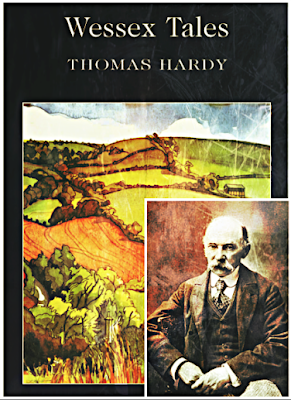Hardy loves a good plot twist, so for those who like a bit of suspense in their classic lit, this is the perfect read.
Below are my thoughts on my favourite of the tales
The Imaginative Woman
An unfulfilled housewife, her intellect unchallenged by her blasé husband and her want of passion unmet, becomes infatuated with the absent tenant of a room she is temporarily occupying. With only the thinnest of associations between them, Ella Marchmill becomes increasingly desperate in her attempts to orchestrate a meeting - one she vainly hopes may turn a correspondence into something more real. In this short tale, Hardy paints a passionate vignette of unrequited love laden with irony.
I loved the irony in this tale. Hardy perfectly evokes the maddening desperation of an unrequited 'relationship' - made all the more desperate considering that the 'couple' never physically meet or actually see each other. I'm always drawn to the timelessness of a story's sentiment or message, and in an updated version, this same tale could be told in the modern world of social media and 'Facebook stalking' - though the premise is a lot more eloquently put in 'The Imaginative Woman'! This was surprisingly straight forward to read, and for those not yet familiar with his work, a brilliant first foray into Hardy.
Have you read 'The Wessex Tales' - which are your favourites?
Have you read 'The Wessex Tales' - which are your favourites?


